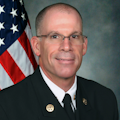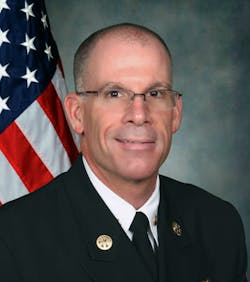As Firehouse Sees It: The Fire Loss Challenge
The American fire service has had a long history of success. Much has been achieved and many lives have been saved since the formation of the Union Fire Company on Dec. 7, 1736. Yet despite more than 279 years of experience and countless advancements in tools and technology, we—the generations far removed from Benjamin Franklin’s era of blaze-battlers—still have much more work to do.
According to the NFPA, U.S. fire departments responded to an estimated 1,298,000 fires in 2014. These fires resulted in 3,275 civilian fire fatalities, 15,775 civilian fire injuries and an estimated $11.6 billion in direct property loss. Home fires caused 2,745, or 84 percent, of the civilian fire deaths. Further, the U.S. remains in the top 10 of industrialized nations for civilian fire deaths per capita, exceeding the rates of Switzerland, Singapore, Austria, Italy, the Netherlands, Australia, Spain and Germany.
While many have debated the variable causes of this disturbing reality, for us, the street-level firefighters/fire officers, it represents a challenge and an opportunity.
In May 1961, faced with immeasurable pressure from the Soviet Union, President John F. Kennedy announced a lofty and ambitious goal of sending an American safely to the moon before the end of the decade. Without definitively acknowledging the political pressure being imposed by the Soviets, the president was on a mission to have the United States catch up to and overtake the Soviet Union in this “Space Race.” In short, he was not willing to accept the United States being viewed as or becoming subservient to the Soviet Union or any other nation. The president was setting a standard of excellence for the United States—a standard for others to admire, affirm and pursue.
During his famous “Moon Speech” at Rice University, President Kennedy shared these words, “We choose to go to the moon. We choose to go to the moon in this decade and do the other things, not because they are easy, but because they are hard, because that goal will serve to organize and measure the best of our energies and skills, because that challenge is one that we are willing to accept, one we are unwilling to postpone, and one which we intend to win, and the others, too.”
Presidents Kennedy’s words—while they may have been focused on a much different topic and inspired by visions of global supremacy, political power and influence—are equally applicable to our nation’s battle with fire.
The American fire service is at a critical point in our development where change and opportunity are running on a parallel path. The demands for our services continue to change, expand and diversify. The depths of our knowledge and the technologies to which we have access are untold; time, motivation and fiscal creativity are our only limitations.
The generations that fill our ranks today are no less competitive than those of the 1960s. So why is it acceptable to any of us that we continue to shoulder the burden of responsibility for an intolerable civilian fire loss statistic that’s far greater than so many less advanced countries?
So I challenge each of you—firefighters of all ranks—to ask yourselves, what we are willing to do to reduce our nation’s fire loss by 20 percent within 5 years. To some, this goal may appear overly ambitious, but for the thousands of families affected each year, it’s a goal of no less importance than sending a man to the moon.
While the hurdles we face are many, we can choose to do this, not because it is easy, but because it is hard, because that goal will serve to organize and measure the best of our energies and skills, because that challenge is one that we are willing to accept, one we are unwilling to postpone, and one which we MUST wholeheartedly choose to win.
Moving forward we must ask ourselves, do we have the political willpower, the desire to influence a following and the internal fortitude to set such a lofty and ambitious goal? Are we politically engaged at a level that affords us the access and opportunity of the required financial and technological support? Are we willing to work collaboratively with nontraditional partners to share information and resources that enable us to multiply our efforts? Are we willing to explore new options and pursue the unimaginable?
If ignorance is no longer, if fear is not within us, what remains?
About the Author

Timothy E. Sendelbach
Editor-in-Chief
Timothy E. Sendelbach is a 30-year student and educator of the fire and emergency services, and former editor-in-chief for Firehouse. He has served as an assistant fire chief with the North Las Vegas, NV, Fire Department, as the chief of training for Savannah (GA) Fire & Emergency Services and as assistant fire chief for Missouri City, TX, Fire & Rescue Services. He is a credentialed Chief Fire Officer and Chief Training Officer and has earned a master’s degree in leadership from Bellevue University, bachelor’s degrees in fire administration and arson and an associate’s degree in emergency medical care from Eastern Kentucky University.
